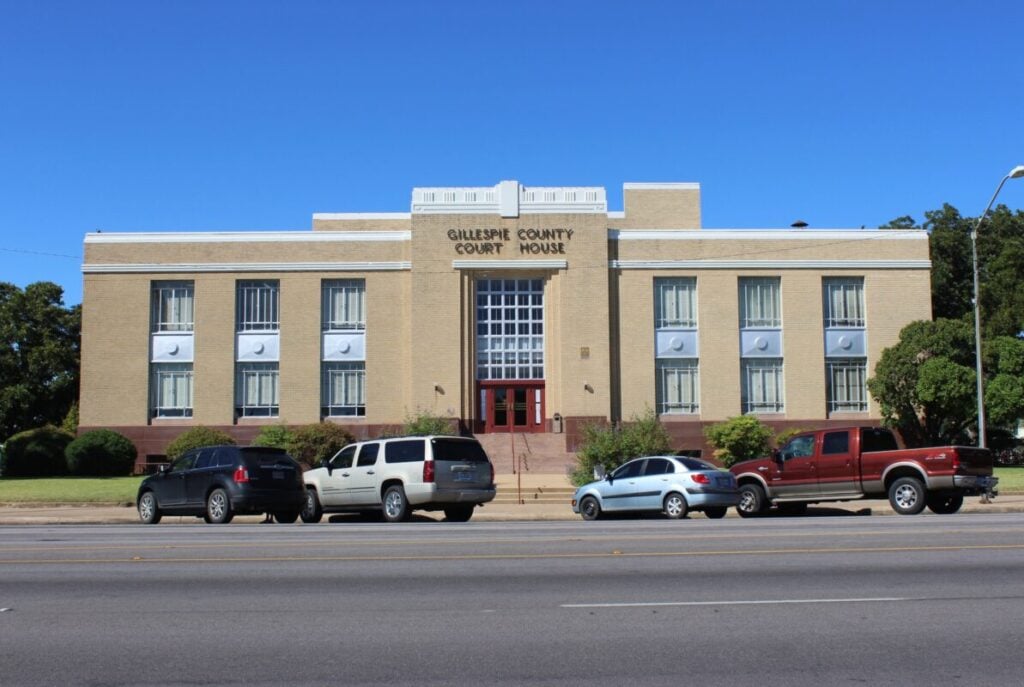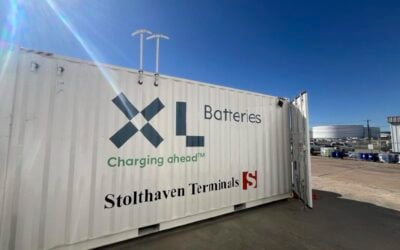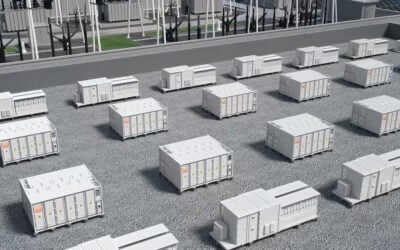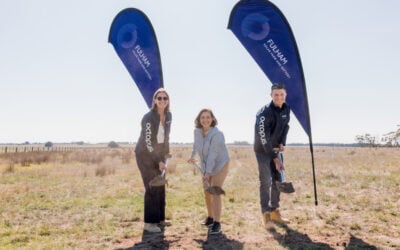
Peregrine Energy Solutions’ 145MW BESS project in Texas is under threat after county commissioners passed a resolution opposing the development of any new battery storage facilities.
Commissioners at Gillespie County, where Colorado-headquartered developer Peregrine Energy Solutions is proposing the standalone battery energy storage system (BESS) project, passed the resolution at a 24 February Commissioners Court meeting, citing numerous issues regarding safety, economics and potential environmental impacts.
Enjoy 12 months of exclusive analysis
- Regular insight and analysis of the industry’s biggest developments
- In-depth interviews with the industry’s leading figures
- Annual digital subscription to the PV Tech Power journal
- Discounts on Solar Media’s portfolio of events, in-person and virtual
Or continue reading this article for free
Gillespie County’s resolution coincides with the introduction of new House Bills to the Texas Legislature with the aim of increasing BESS regulations in the Lone Star State.
County cites economic, safety and environmental issues
As in similar cases, although the county’s Commissioners Court recognised the need for “dependable and sustainable” energy sources, the resolution described BESS as a ‘new and rapidly evolving’ technology without a ‘well-documented history’ of impacts on local communities.
Despite these assertions, lithium-ion BESS facilities have long been used to firm up electricity grids, as shown by recent data from the US Energy Information Administration (EIA).
According to the independent statistical agency, grid operators across the US added an additional 10.4GW of cumulative energy storage capacity in 2024, taking the US’ overall deployed BESS capacity beyond 26GW.
Court commissioners at Gillespie County also took issue with the minimal number of staff required to maintain an operational BESS site, stating that the siting of an energy storage project goes against the county’s ‘goals of increasing economic and employment opportunities’.
Commissioners also listed the dangers associated with BESS thermal runaway as part of their reasoning for passing the resolution.
The resolution, signed by all four Gillespie County Commissioners and County Judge Daniel Jones, concluded with a statement opposing the development and operation of all BESS in the county, finding energy storage to be ‘contrary to the fundamental economic development and health and safety goals of the County.’
Although the resolution isn’t labelled as a blanket BESS moratorium, it will likely create significant permitting challenges for developers in Gillespie County.
In the US, moratoriums on the development of new BESS facilities have historically been enacted to allow time for officials at local authorities to develop standards around BESS permitting and zoning. As recently reported by Energy-Storage.news, this is what is currently happening in Orange County, California.
BESS projects in Gillespie County at risk
Despite multiple BESS projects planned for Gillespie County, the Commissioners Court chose to take aim at Peregrine Energy Solutions. During the same hearing, a second resolution was passed requiring the developer to hand over a list of specifications and plans associated with its Rodgers Draw Energy Storage project in order to assess its fire safety credentials.
The list, which includes details on Peregrine’s plans for fire suppression, a hazard mitigation analysis and large-scale fire test (LSFT) data, follows the set of guidelines outlined in safety standard NFPA 855 that has been adopted by the Texas State Fire Marshal’s Office.
The resolution claims that during nine months of the year, prevailing winds would carry toxic smoke from a BESS fire towards a nearby school and surrounding community.
According to a dedicated website for the development, the 145MW Rodgers Draw project, also referred to as Harper BESS, will utilise technology provided by Finland’s Wärtsilä. In addition to this being Peregrine’s first project, the resolution claimed it would also mark the first installation in the field for Wärtsilä’s Quantum 2 modular BESS unit, launched by its Energy Storage & Optimisation (ES&O) division in April 2024.
Around the time of the launch, in an interview with Energy-Storage.news, a spokesperson from Wärtsilä described the new unit as being designed to prioritise safety, adhering to key international standards, including NFPA 855.
The project, expected to be operational by May 2026, will connect to the Electric Reliability Council of Texas (ERCOT) grid via the neighbouring Headwaters 138kV substation owned by Lower Colorado River Authority (LCRA). Peregrine has already secured an interconnection agreement with LCRA and the Texas system operator for the project (ERCOT queue number 24INR0514).
According to ERCOT’s most recent generator interconnection report, there is only one more development proposed for Gillespie County incorporating storage, known as the Marshall Springs project, that will pair a 150MW solar farm with a 150MW BESS.
The Texas-registered business subsidiaries associated with the project point to the development being owned by AMPYR Energy USA – a joint venture between AGP Group and Hartree Partners.
Although the project is scheduled for commercial operation to start during the middle of next year, AMPYR has yet to obtain an interconnection agreement for either the solar or storage portions (ERCOT queue numbers 25INR0353 + 25INR0354).
“We are aware of the recent resolutions and are currently evaluating potential impacts,” said a spokesperson from Peregrine after Energy-Storage.news reached out for comment.
County expresses support for new BESS legislation
In their first resolution opposing BESS developments, Gillespie County commissioners also expressed their support for recent legislation proposed by Texas congresswoman Ellen Troxclair.
Troxclair, self-described as a “proven conservative voice for Texas House District 19”, has recently introduced a series of new bills to the Texas House of Representatives, all targeting BESS development.
The main piece of legislation, House Bill (HB) 1343, would require developers looking to develop BESS for the ERCOT market to obtain a permit administered by the Public Utility Commission of Texas (PUC).
Under the terms of the legislation, developers would be required to cite their energy storage projects a ‘sufficient distance’ away from other BESS developments. Additionally, projects must be located to ensure access to residential areas isn’t restricted in the event of a fire.
The PUC could also hold ‘one or more’ public meetings on an application if it deems there to be ‘substantial public interest’ in the permit application.
Along with HB 1343, Troxclair has filed other bills to affect BESS development, including one removing tax incentives for renewable energy projects and another requiring projects adhere to minimum fire safety requirements.






